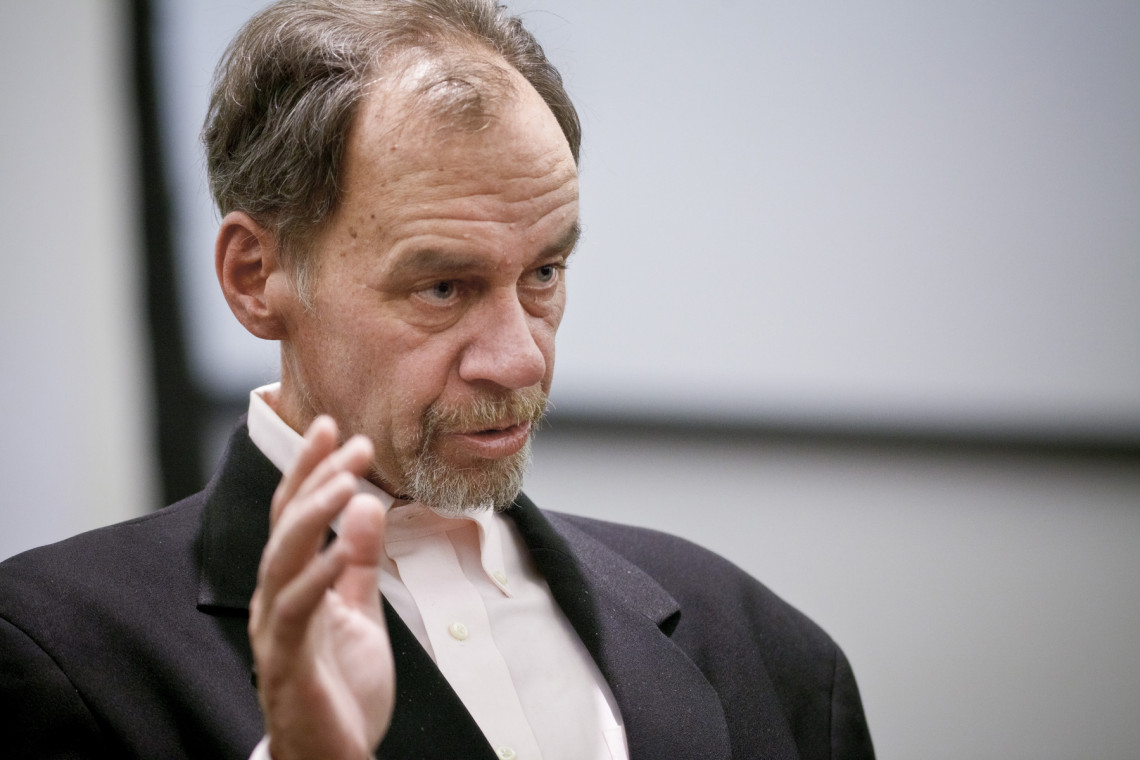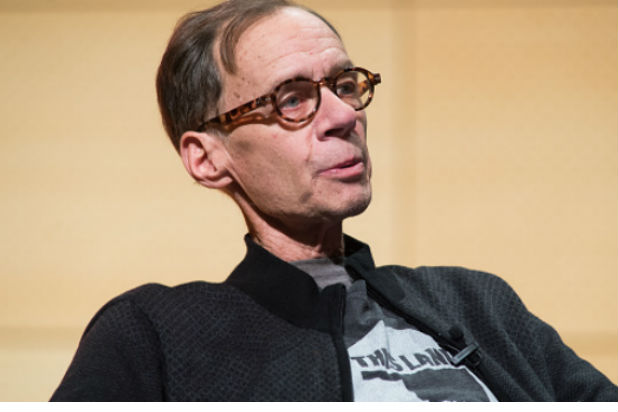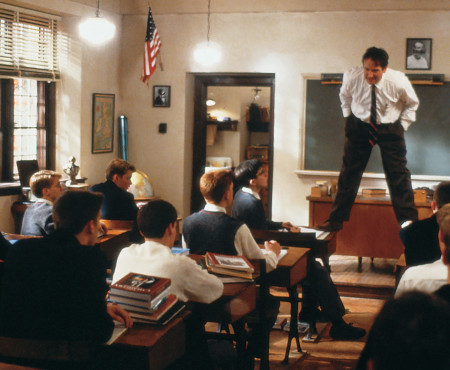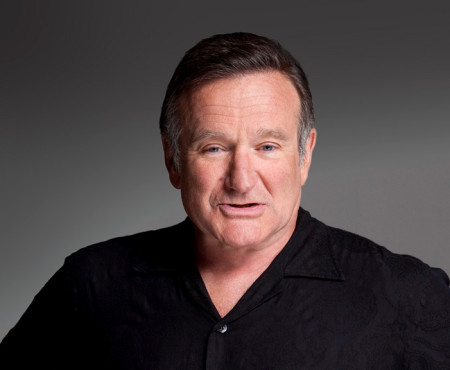The hardest thing about writing nonfiction is being a decent human being. For critics—who are paid to give their opinions on stuff—this seems even trickier. It’s a den of temptation for all of us who are secret egomaniacs: “Sure, we have something true to say that other people need to read and nod along.”
It’s rare to read a writer who does this well—the one who’s always kicking over the pedestals and lighting the effigies on fire, then turning around and noting wryly that he’s the one who put the pedestal there in the first place.
Many of us looked to David Carr as one of the models for writing for a broad audience in a sea of changing media. Carr died yesterday on the job at The New York Times, and it was an enormous loss. The outpouring from those who knew him only increases my respect. As Ta-Nehisi Coates put it on Twitter earlier today:
Praise pouring out from young journalists over @carr2n‘s death has a dark side–the fact that this sort of mentorship is so absent, now.
— Ta-Nehisi Coates (@tanehisicoates) February 13, 2015
Carr’s descent to the bottom of addiction and slowly back out into, eventually, the Times‘ newsroom as media columnist is harrowing enough in its outlines, and far more in its details. Re-reading his devastating 2008 essay “Me and My Girls,” in which he excavates his addiction and recovery, makes clear his commitment to the truth: he tells his own version of events, then trains his ruthless reportorial sniffer back on himself—talking to people who were there, who remember through the eyes of sobriety what he did, what he didn’t do, and what kind of half-shadows displace pockets of darkness in the retelling:
If I said I was a fat thug who beat up women and sold bad coke, would you like my story? What if instead I wrote that I was a recovered addict who obtained sole custody of my twin girls, got us off welfare and raised them by myself, even though I had a little touch of cancer? Now we’re talking. Both are equally true, but as a member of a self-interpreting species, one that fights to keep disharmony at a remove, I’m inclined to mention my tenderhearted attentions as a single parent before I get around to the fact that I hit their mother when we were together. We tell ourselves that we lie to protect others, but the self usually comes out looking damn good in the process.
Admitting that lie in the face of a pretty damn good story is hard work. It requires both a connection to one’s own story and emotions—no cool distance allowed—and the ability to pull back and watch yourself, to see how you’re implicated in the story and the telling of it and how people perceive you for telling it. Carr knew we fit the facts we’re given by the narrators we read into timelines and arcs that comfort us, and he refused, over and over, to let that happen.
It seems fitting, then, that he didn’t leave this self-implying narrator at the door when he got down to writing about media, which is what he was up to most of the time. Writing about media as a member of the media, in formats being distributed to readers in an increasingly varied media ecosystem, meant Carr had to have a clear sense of how he was implicated in all this—how his work both contributed to and perhaps bucked against the things he was writing about.
He possessed awareness that there were things he had to say, stands he had to take, but that he could be that guy the next day. You could pull virtually anything he wrote out, from his personal testimony about getting on Twitter (he was reluctant, but succumbed, and figured out later he was wrong), to his profiles and bang-up musings on new technologies and more. But only 5 days ago, he was writing about Brian Williams stepping aside at NBC, and recognizing that his own story informs how he thinks about Williams’:
I wrote a book about the nature of memory and the stories we tell ourselves and others. Stories tend to grow over time and, if they are told often enough, they harden into a kind of new truth for the teller . . .
. . . As the evening news anchor, Mr. Williams possesses a rare combination of fame and trust, with each feeding off the other. But fame is slippery, morphing into infamy very quickly, as Mr. Williams discovered in four days of sustained pounding. Everyone loves a story about seeing the mighty fall, even if they are as fundamentally likeable as Mr. Williams.
Carr pulls in his own experience only in service of the story, which is about truth and a public that feels betrayed—retreading his own ground is an act of empathy. He was an unusually enthusiastic fan of the first-person pronoun in his writing and reporting, something often verboten among journalists of his stature. But when you look closely, you realize he wasn’t doing it to talk up himself. Carr drags himself into the story only when his experience gives the reader space to breathe, the feeling that she, too, can have an experience, or that she can journey alongside Carr. It’s disarming and effective.
Which brings up one more lesson for those of us who write about movies, and who can get trapped in the echo chamber. Carr started The Carpetbagger blog at the Times, where he wrote about the Oscars and the movie awards season. A few years ago, Aaron Sorkin interviewed Carr for Interview, and asked him about that work. “Is that something that was fun for you?” Sorkin asked. Carr replied:
I did that up until two years ago, and then I stopped doing it because I’m a movie lover. I’m the kind of guy who shows up on the day a film opens and sits in the third row with a big box of popcorn and expects it to be really great. But what I learned in the four years that I covered the Oscars is that many of the people that I had so much regard for—and, frankly, awe for in terms of what they were able to do with the tools of filmmaking—were in fact monsters in some ways and really not that great to be around. Of course, I did meet a lot of other people who were grand and wonderful, but the look behind the curtain was eroding my romance with American film. Going to the movies is a very important part of my life. You know, if you tell me you’re going to make a big, two-hour long story about the development of a social network, I’d say there’s no way that’s going to happen. But David Fincher got some schmuck—I forget the guy who wrote it—and made it riveting. And then you get Trent Reznor doing the music, and you’ve got these ra-ta-tat scenes in bars and courtrooms . . . It’s just, like, I don’t really want to know how those guys pulled it off, I just want to sit there and enjoy it.
Carr knew that while he could write about a lot of things, some of them would spoil his deep pleasure in something he loved, and that’s a thing I worry about too. Learning that critical self-distance can be hard-going, and for a critic, it can sap the joy out of the writing. But I always sought out Carr as a guide to writing about things I was deeply invested in and also deeply implicated in. He was humble about it, and also tenacious, and so I can be, too. He was well-liked and generous to others in his profession and in the fields he covered, and so I can see that it’s possible. I’m grateful that he let us know him like that.





















